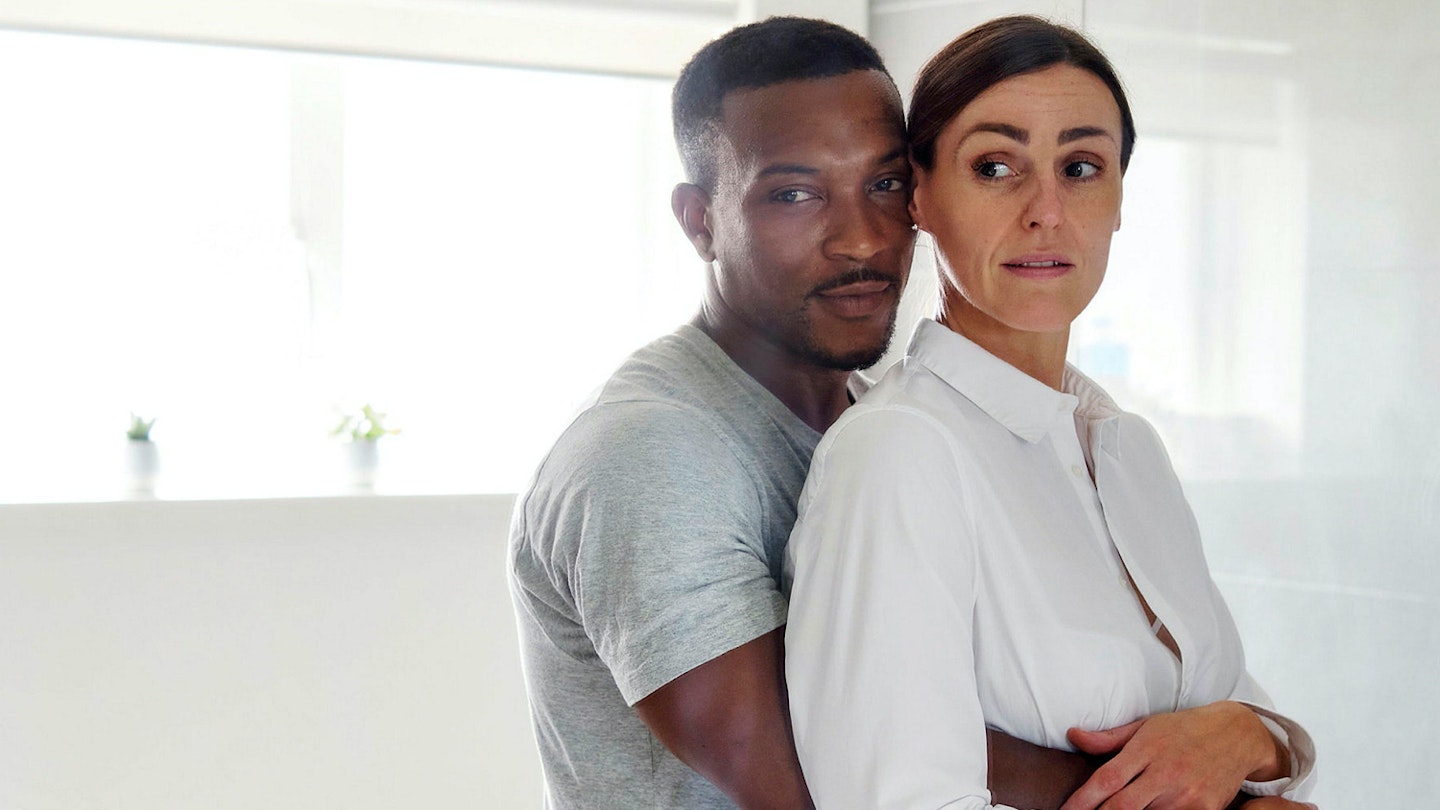Episodes viewed: 3 of 3
Dominic Savage’s first I Am anthology in 2019 was a raw and textured interrogation of what it means to be a contemporary woman. The three episodes were made collaboratively with their stars Vicky McClure, Samantha Morton and Gemma Chan, and while their characters’ scenarios couldn’t be more different, each had a guttural, personal performance at its core. Savage returns now with a second anthology, plunging headlong into the thorny world of a woman who must face a life-altering decision.

I Am Victoria addresses a worsening mental illness that has consumed a mother of two (Suranne Jones) who seemingly has a perfect life. It’s no spoiler to say that the condition and its cause are never revealed. From the episode’s opening scenes, where Victoria endures a punishing morning routine, Jones plays her character’s panicked and propulsive impulses to perfection. Her surrounding life is idyllic on the face of it; she has the high-paid job, the saintly husband (a brilliant Ashley Walters) and healthy kids. Yet her anxiety, which causes her to fixate dangerously on feminine perfection, forms a partition between the life she has and the one she is constantly pushing to achieve. Savage keeps the camera close and choppy to capture the airless, restless world that Victoria inhabits.
I Am Danielle summons a similar feeling of disarray, as Letitia Wright’s photographer cautiously embarks on an intimate relationship with an enigmatic model (C.J. Beckford), which forces her to test her boundaries when it comes to intimacy. Warmly executed, it throws a sharp left-turn into the narrative that is new for the series.
Empathetic storytelling doesn’t come much better than this.
In I Am Maria, Lesley Manville’s naturalistic performance bottles her character’s desperate unhappiness as she tries to assert her worth to her baffled husband (Michael Gould), and by extension, herself. Each narrative is sparing, tethered to a few minor events: a disastrous dinner party for Victoria, Maria’s disappointing birthday. The surrounding characters are also pared down, which is a missed opportunity with Walters as you sense that he has more depth to bring. A further qualm would be Savage’s handling of status. Whereas Morton especially embodied a woman from a different economic background in the original anthology, the second season of I Am doesn’t represent class as broadly — it reflects only women with financial stability and the independence that comes with it.
Privilege withstanding, Savage creates a believable space for the harried yet robust and persistent women to grow. With portrayals filled with both complexity and foibles, the three leads instil an agency into their characters rare for female characters in TV these days. It’s that personal investment from each that brings you closer to their stories. As each stumbles towards hope, you find yourself willing their struggles to be for something. Empathetic storytelling doesn’t come much better than this.
